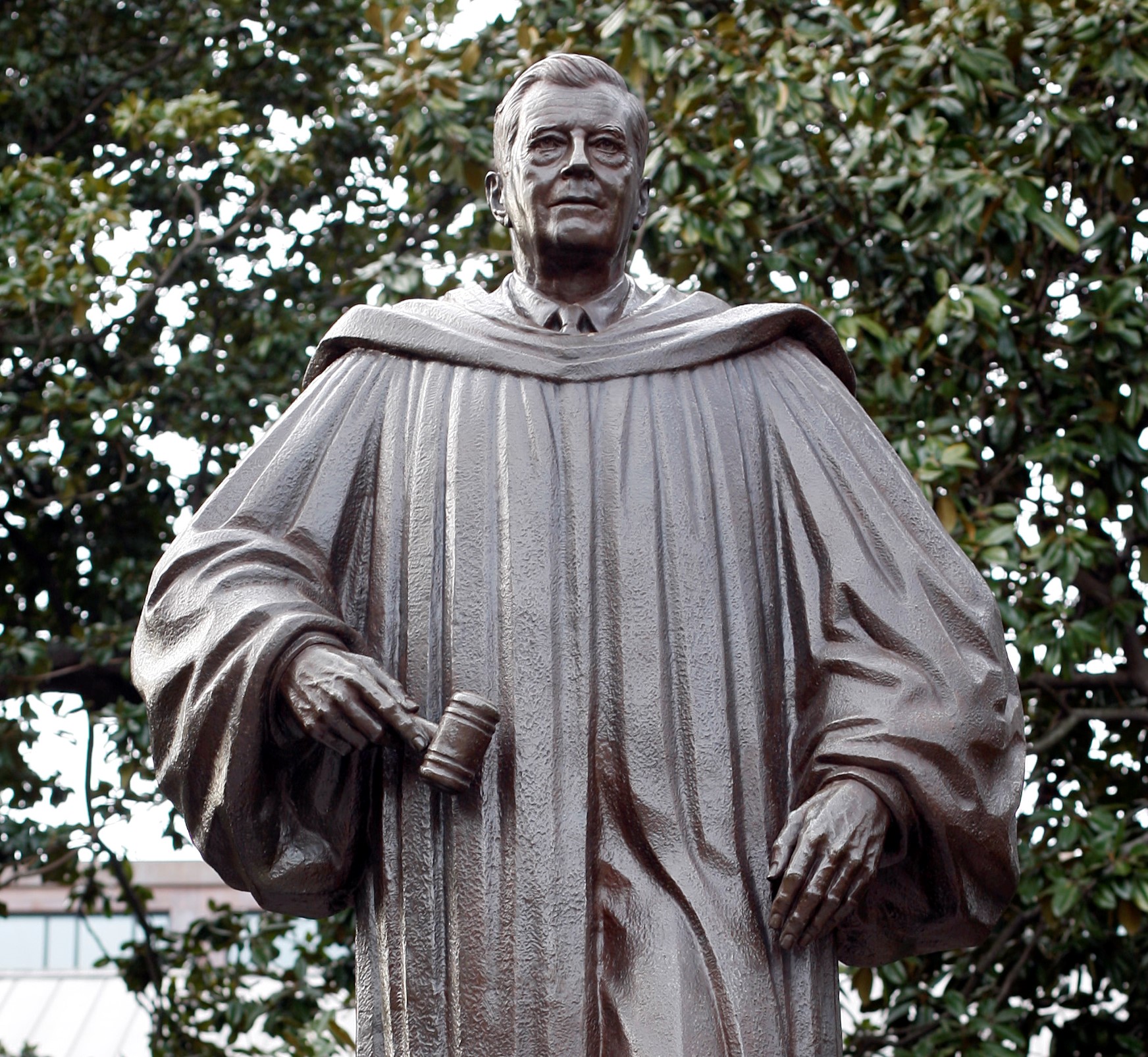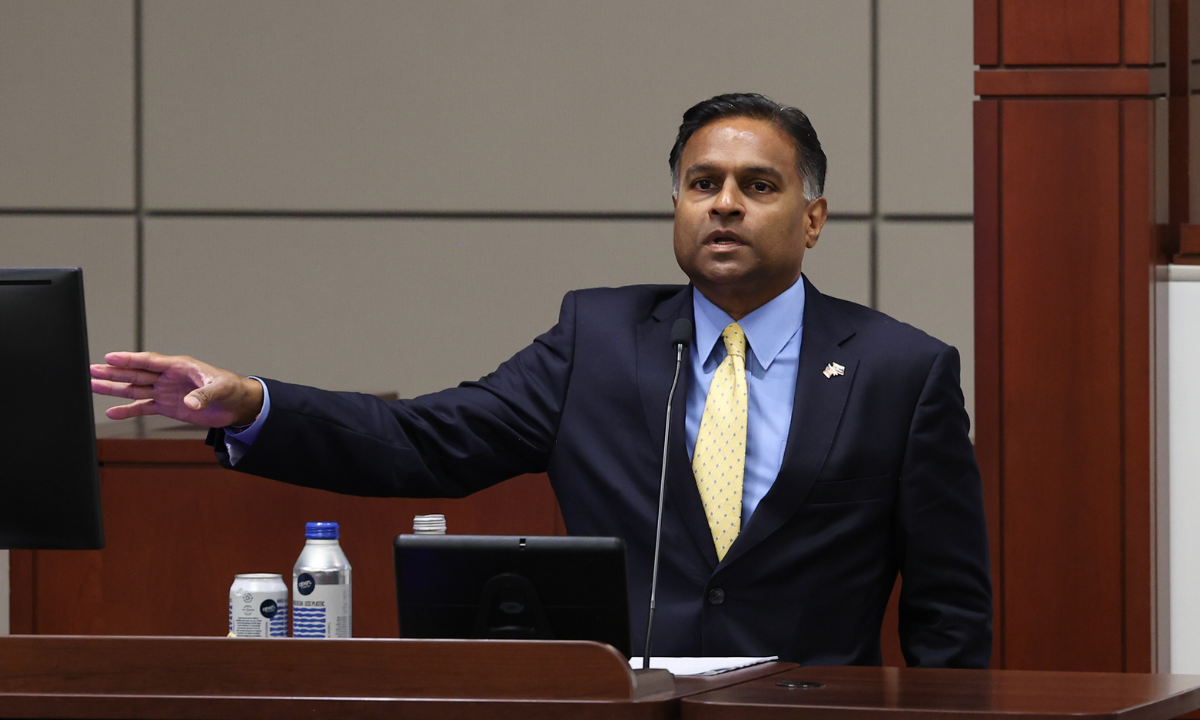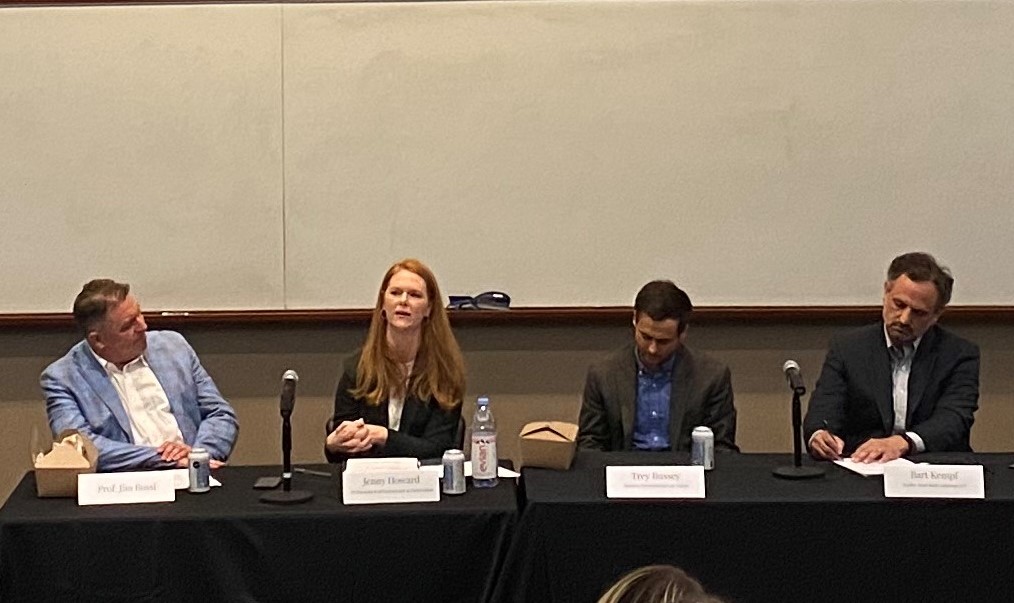Sarah Fowler ’08 discussed the reasons that a stunning 97 percent of members of the Screen Actors Guild – American Federation of Television and Radio Artists (SAG-AFTRA) voted to authorize a strike in a Nov. 2 talk sponsored by the Labor and Employment Law Society.
SAG-AFTRA represents approximately 160,000 actors, announcers, broadcast journalists, dancers, DJs, news writers and editors, program hosts, recording artists, singers, stunt performers, puppeteers, recording artists, voiceover artists, and other media professionals. Members voted to go on strike against the Alliance of Motion Picture and Television Producers on June 13.
Fowler is the lead attorney handling the union’s strike. “We are on day 112 of a strike against our largest contract, representing TV and film performers,” she said. “This truly is a historic moment.”
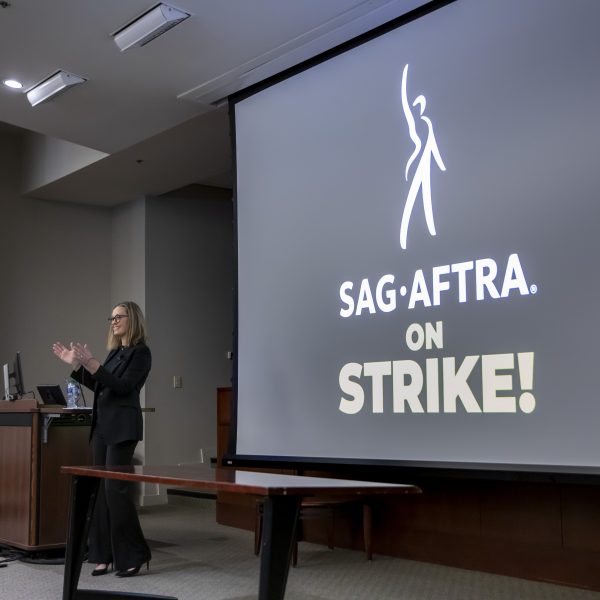 Fowler provided a short history of SAG-AFTRA, which was formed two years before the National Labor Relations Act was passed in 1935. “The entertainment industry is one of the most heavily unionized industries in the world,” she said. “Everyone on a set is represented by a union. We work to make sure they’re paid fairly, that they’re safe on the set, and that they have access to healthcare and pension plans for when they retire. Hollywood is very much a union town.”
Fowler provided a short history of SAG-AFTRA, which was formed two years before the National Labor Relations Act was passed in 1935. “The entertainment industry is one of the most heavily unionized industries in the world,” she said. “Everyone on a set is represented by a union. We work to make sure they’re paid fairly, that they’re safe on the set, and that they have access to healthcare and pension plans for when they retire. Hollywood is very much a union town.”
The current SAG-AFTRA strike is only the third in the union’s history. Fowler noted that the venerable union’s two previous strikes, in 1960 and in 1980, both occurred when the television and motion picture industry failed to revise compensation, contract terms, and working conditions for actors and other union members necessitated by advances in technology, changes in the ways films and television programs are produced, distributed, and viewed by consumers, new uses for films and programs not addressed under current contracts, and evolving work conditions.
The current strike is an outgrowth of many changes in how films and television programs are produced and distributed, all occurring simultaneously. “A couple of years ago, we reached a tipping point for members who work as series regulars on TV and streaming programs,” she explained. “Contract provisions relating to TV series were first negotiated when there were three major broadcasts networks and programs had regular production schedules of 23 or more episodes a year, and employers could justify contacts granting them exclusive rights to performers.
“Actors today are under contract for the same time period or longer, but they work on a fundamentally different model—the gap between seasons is 6 months to two years, and the number of episodes per season has been cut to 12 or fewer. Our members are still paid per episode, and employers would not admit the model had changed or agree to reasonable changes in our contracts.”
Fowler emphasized that not all the work unions do on behalf of workers “happens at the bargaining table,” noting that only after California legislators sponsored the Let Actors Work act, which prohibited contracts barring actors from working for multiple employers unless the employer could show a direct conflict, was SAG-AFTRA successful in negotiating more favorable contracts for its members. 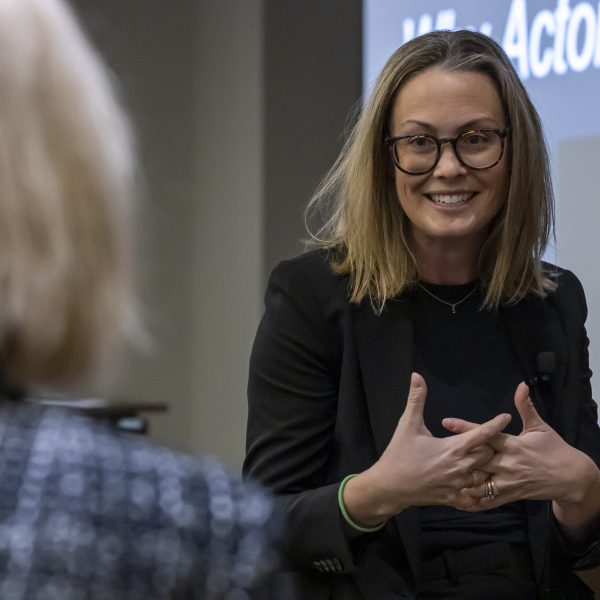
SAG-AFTRA also helps its members navigate crises such as the COVID-19 pandemic by negotiating rules to protect the safety of everyone on television and film production sets. “COVID shut down the entertainment industry overnight. Our members needed us to step in and figure out how to get them back to work while keeping them safe in the face of a highly infectious pandemic,” she said.
Emerging AI technology presents a major challenge she believes will also require government regulation. Fowler cited legislation in California and New York that “would prohibit unauthorized use of digital replicas without the person’s informed consent.”
“This technology is frankly too scary to solely rely on good-faith bargaining, and it’s not something where we can go to the table multiple times,” she said.
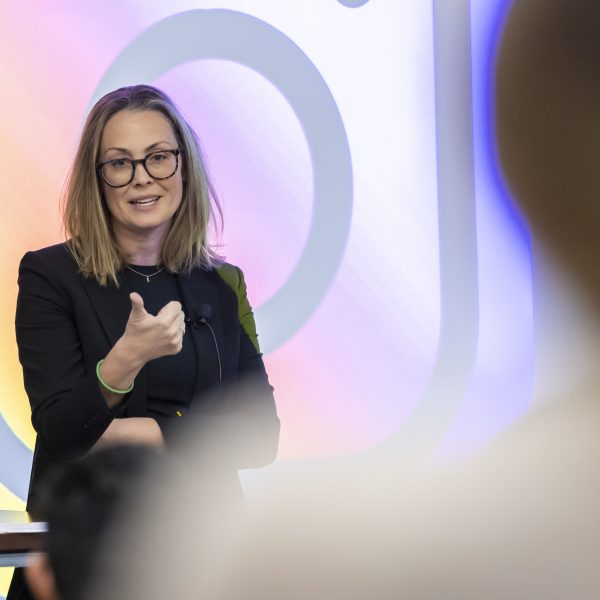 Influencers producing content on social media platforms represent another set of considerations. “They aren’t actors, but they are performers—and they didn’t have a path to membership in our union, which meant we couldn’t protect or influence a new group of performers. So we learned what their businesses looked like and what they needed and how being part of a union could benefit them and came up with an agreement tailored that gives them a path to pension and health benefits, insured they retained ownership of the intellectual property they create, and provided other protections,” she said.
Influencers producing content on social media platforms represent another set of considerations. “They aren’t actors, but they are performers—and they didn’t have a path to membership in our union, which meant we couldn’t protect or influence a new group of performers. So we learned what their businesses looked like and what they needed and how being part of a union could benefit them and came up with an agreement tailored that gives them a path to pension and health benefits, insured they retained ownership of the intellectual property they create, and provided other protections,” she said.
Fowler encouraged attendees to consider focusing on labor law. “Labor is having a big moment right now—bigger than anything I’ve ever seen, and that’s not an accident, and unions are stepping up in visible, out-of-the-box, important ways to shape the future of work,” she said.
Fowler was introduced by Vice Provost for Faculty Affairs Tracey George, a member of the Law faculty who taught Fowler’s 1L Contracts class in 2005. Her lecture was made possible by the Hyatt Student Activities Fund, endowed by Wayne S. Hyatt ’68 (BS’65) and his late wife, Amanda M. Hyatt (BA’67, MA’74), to support student-initiated events that enrich the intellectual life at VLS.
